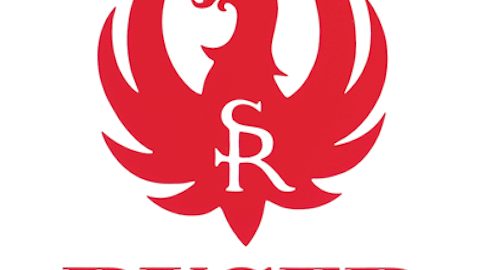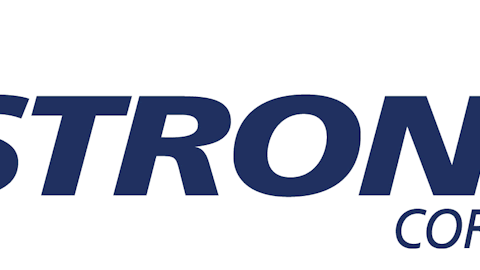So far this year, the S&P 500 is up around 17.8%, however, the Russell 2000, the small-cap market index composed of the bottom 2,000 stocks in the Russell 3000 index, is up 22%.

Small caps have beaten the wider market due to their lack of international exposure and domestic growth. For example, international companies have been hurt by a rising U.S. dollar and mixed growth around the world. Meanwhile, companies which are based in the U.S. have been able to benefit from surging economic growth and rising consumer spending, as lower mortgage rates have led to refinancing and higher levels of consumer spending.
Three small caps set for further growth
First up is Universal American Corporation (NYSE:UAM), a good play on healthcare insurance throughout the U.S. Although small, Universal American Corporation (NYSE:UAM) still packs a punch. Valued at around $900 million, the company’s specialty is medical insurance and it offers services such as Medicare covered benefit, network-based private fee for service plans, and additional supplement benefits such as defined prescription drug plans.
Universal American Corporation (NYSE:UAM) sells its products through a network of independent general insurance agencies, and as the population grows older, Universal American Corporation (NYSE:UAM) should continue to benefit. Indeed, the Medicare market has been one of the fastest growing markets in the U.S. during the past few years, and the market is set to nearly double over the next eight years, rising from a total value of $600 billion in 2013 to $1,050 billion by 2021.
Universal American Corporation (NYSE:UAM) has two main revenue streams, insurance products and investment income. Indeed, during the first quarter, the company reported $521 million in revenue from insurance premiums and $40 million revenue from investment income. Additionally, the company easily beat analyst expectations with EPS of $0.20 for Q1, when $0.17 was expected.
Furthermore, on valuation grounds, Universal American Corporation (NYSE:UAM) looks cheap. The company trades at a P/B value of 0.86 and a price-to-sales ratio of 0.40, slightly below the ratio of its ten largest peers, which trade at a ratio of 0.43. However, the company does have a very low level of debt and EPS is expected to grow around 20% this year, as the company benefits from the rising value of its investments and increasing revenue from its insurance arm.
Profit from self-defense
Despite the almost consistent negative press surrounding the company, investors could do worse than put cash to work at Smith & Wesson Holding Corp (NASDAQ:SWHC). The company is on a roll and demand for firearms is far outstripping supply. The company’s EPS is expected to expand 10% this year, then 30% over the next five years, an impressive rate of growth.
That said, this rate of growth will be higher when the company completes its tender offer and buyback (if the tender offer is complete as the company has already been forced to raise its offer).
One of the issues holding back Smith & Wesson Holding Corp (NASDAQ:SWHC) is not the lack of demand, but the lack of capacity to keep up with demand. The company recently raised $50 million to try and grow its production capacity.
Smith & Wesson Holding Corp (NASDAQ:SWHC) is set for growth and this growth is currently cheap, the company trades at a forward P/E ratio of only 7 and a PEG ratio of 0.30, indicating that the company offers growth at a reasonable price. Moreover, the company is well capitalized with a quick ratio of 2 and a debt to equity ratio of only 24%.
Having said all of that, one of the reasons behind the company’s low valuation is the speculation that it could be shut down if firearms are regulated in the U.S. This is a huge issue that is overhanging the company, but currently, it is not a realistic proposition, so the company looks attract at these levels.
An attractive retail proposition
Lastly, one of the best performing company’s in the Russell 2000 is Francesca’s Holdings Corp (NASDAQ:FRAN), a seller of women’s apparel and accessories. Unfortunately, Francesca’s Holdings Corp (NASDAQ:FRAN) stock has fallen recently as investors and the market have been concerned about its falling comparable same-stores sales, and the ability to maintain its profitability and customer loyalty in the cut-throat retail environment.
In particular, Francesca’s Holdings Corp (NASDAQ:FRAN) sold off after first-quarter results, when the company reported that comp sales growth came in at only 2% and EPS missed estimates. In addition, the company guided for full year EPS to be between $1.27 and $1.30 — the Street expected $1.30.
But enough about what Francesca’s Holdings Corp (NASDAQ:FRAN) has reported, one of the company’s main selling points is its ability to grow, in particular, the company’s quick investor turnover, low selling costs, and high revenue per square foot figures. Indeed, Francesca’s Holdings Corp (NASDAQ:FRAN) reported a return on equity of 77% during 2012 and an operating margin of 26%, both figures were higher than those of its ten largest peers in the apparel stores sector, which stood at 23% and 12%, respectively.
Elsewhere, Francesca’s Holdings Corp (NASDAQ:FRAN) is well capitalized with a quick ratio of 2.2 and no debt, cash is worth $0.77 per share.
Foolish summary
Domestic small caps have been on a good run recently. The strong U.S. economic recovery and the lack of exposure to international currency fluctuations has driven growth. These three companies above have unique business models and present decent investing opportunities with plenty of growth ahead. The cheapest and best appears to be Smith & Wesson Holding Corp (NASDAQ:SWHC), but Francesca’s business model is also attractive.
Fool contributor Rupert Hargreaves has no position in any stocks mentioned. The Motley Fool has no position in any of the stocks mentioned. Rupert is a member of The Motley Fool Blog Network — entries represent the personal opinion of the blogger and are not formally edited.
The article 3 Winning Small Caps Set for Further Growth originally appeared on Fool.com is written by Rupert Hargreaves.
Copyright © 1995 – 2013 The Motley Fool, LLC. All rights reserved. The Motley Fool has a disclosure policy.


